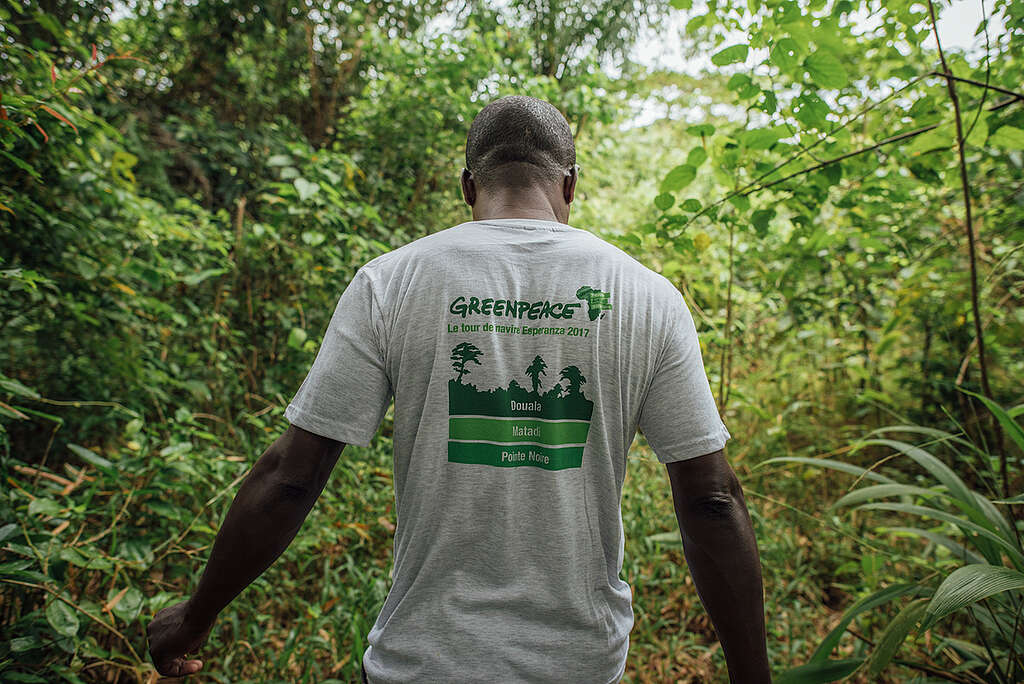Protecting forests will not only preserve biodiversity and defend the rights of forest communities, it’s also one of the quickest and cost effective ways of halting climate change. Greenpeace is campaigning for zero deforestation, globally

Greenpeace is campaigning for a future that will allow our forests to thrive – filled with unique wildlife and able to sustain local people and economies whilst cleaning the air of carbon: a future with no deforestation. This may be ambitious, but it is possible. In fact, because stopping forest destruction is one of the easiest and most cost effective ways to prevent catastrophic climate change, we think it’s essential. To protect these precious ecosystems, the international community, corporations, Indigenous communities and individuals will need to work together in an unprecedented, concerted effort. Greenpeace is campaigning to realise this vision in several ways:
Corporate action
If corporations have the ability to destroy the world’s forests, they also have the power to help save them. We investigate, expose and confront environmental abuse by corporations around the world, and ask our supporters to take action for the planet. As a result, many multinational corporations have changed their practices – but there is still a long way to go to protect the world’s forests.
Consumer power
The conversion of irreplaceable forests into consumer products like tissues, books, paper and ingredients food and toothpaste is one of the great environmental crimes of our time. But, in the battle to protect our forests, consumers have the power. Don’t believe us? Just ask Unilever, Nestle, McDonald’s and Kraft, all of whom changed their sourcing policies after our supporters piled on the pressure.
Political solutions
Greenpeace is campaigning for a meaningful, international mechanism to help end forest destruction globally known as REDD (reduced emissions from degradation and deforestation). If it is done well, REDD could benefit biodiversity, humanity, and the climate. Yet some governments and industries are lobbying hard to undermine REDD – or unfairly profit from it – and many forest communities are being left out of discussions that will directly affect their lives.
Putting ‘No Deforestation’ into practice
Tropical forests hold large stores of carbon, are packed full with important biodiversity, and are critical for millions of people from local communities who depend on forests for their livelihoods. The companies that have been converting tropical forests to agriculture or plantations, for commodities like palm oil or paper, have come under increasing pressure from their customers to prove that their operations and supply chains are not causing deforestation. Defining deforestation is very complex, as it has to factor in carbon and climate, biodiversity and social implications. However, the urgency for an answer increases every day as more of our irreplaceable forests are destroyed. Over the last three years, Greenpeace has been working with one of the world’s largest palm oil suppliers, Golden Agri-Resources (GAR), and The Forest Trust, on a pioneering initiative on implementing no deforestation and forest conservation – via identifying and conserving High Carbon Stock (HCS) forest areas.
Forest communities
Greenpeace works with indigenous communities around the world at the front line of forest destruction – supporting the demarcation of traditional boundaries and eco-forestry initiatives, and offering a global platform through which these communities can address the rest of the world. Why? We believe that if these communities are able to keep control of their forests, they will protect their resources for the future, and the planet.
The Forest Stewardship Council (FSC)
Ecological and socially responsible forest management can, and is, being practised by some companies. This kind of forest management seeks to ensure that the forest ecosystem is not damaged, that only low volumes of trees are extracted, and that the impacts on plant and animal life are minimal. The FSC, an international, non-profit association, was created in 1993 so that corporate buyers and the public can identify products that come from responsibly managed forests.


